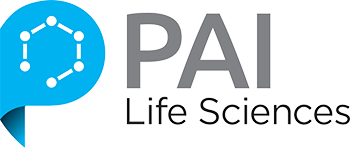
Pipeline
PAI LIFE SCIENCES PIPELINE
SchistoSHIELD Vaccine
A defined molecular vaccine for intestinal schistosomiasis – a major neglected tropical disease.
Scientist from Texas Tech University Health Sciences, (Dr. Afzal A. Siddiqui), PAI Life Sciences (Dr. Darrick Carter) and IDRI (Dr. Steve Reed) have developed a defined molecular vaccine for intestinal schistosomiasis. This vaccine is based on a recombinant antigen, Sm-p80, that is easily accessible to the host’s immune system and that serves a function which is vital for the survival of the parasite. The aim of this vaccine, SchistoShield®, is to lower adult worm and egg burdens and morbidity reduction and interrupt transmission that will allow for eradication or elimination of the disease.
SchistoShield® has four pronounced effects: prophylactic effect in adult worm reduction following cercarial challenge; egg induced pathology resolution both in baboons and mice;therapeutic effect via killing of established adult worms in chronic infections and cross-protection against urinary schistosomiasis. There appears to be low hypersensitivity risk upon vaccination with SchistoShield® because there is a lack of prevailing Sm-p80-specific IgE in high risk/infected human populations. Further, anti-Sm-p80 IgG levels in serum from Kenyan car washers positively correlate with the level of resistance over time. Through a Small Business Innovation Research phase I grant from National Institutes of Health, SchistoShield® is going through Process Development, Formulation, Stability/Potency Testing, and cGMP manufacture leading to IND filing with the final goal of Phase I /II human clinical trials.


Schistosomiasis: A Public Health Concern to a Billion People
Schistosomiasis is a major neglected tropical disease (NTD) of public health concern to a billion people. Currently an estimated 200 million are infected and an additional an estimated 800 million people are at risk of acquiring this disease in 74 countries. The disease carries high morbidity. Revised estimates of disability adjusted life years (DALYs) and recent calculations based on health-related quality of life (HrQoL) points to a much higher disease burden of schistosomiasis than has previously been recognized. Current schistosomiasis control strategies are geared toward repeated treatment with praziquantel, a drug discovered in the 1970s. Dependence on the drug therapy approach alone is inadequate in the short term because this strategy has had little impact on the reduction of disease transmission and infection rates continue to be high. There is always the inherent risk of development of drug resistance by the parasite. Reduction in the disease sequelae and transmission can only be attained through long-term protection via vaccination coupled with drug treatment. An effective vaccine would play an important role in the reduction of schistosomiasis morbidity.
